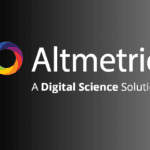Instructional theories are comprehensive frameworks that encompass various policy approaches to teaching and learning. These theories provide specific guidance on problem-solving methods and aim to advance higher education and research in the relevant subject matter.

Three types of theories can be mentioned in reference service:
- The Conservative Theory
- The Quantitative Theory
- The Liberal Theory
The Conservative Theory of Reference Service prioritizes traditional methods and values in providing library services, favoring tried-and-true practices over innovative but untested approaches. It emphasizes upholding established standards and procedures to ensure consistency and reliability in reference interactions, reflecting a preference for stability and continuity in library services.
The Quantitative Theory of Reference Service focuses on using data and statistical methods to measure and improve the effectiveness of library reference services through evidence-based decision-making and continuous improvement.
The Liberal Theory of Reference Service advocates for flexibility, user-centered approaches, and the incorporation of new technologies to enhance library services.
The Reference department of the library may receive readers and researchers of different professions, levels, standards, merits, ages, etc. Everyone’s theme is to answer the question. For example, pre-guessing or anticipating the topic of the question, the nature of the question and the sources of the answers and organizing the guidance section accordingly. Then it will be possible to easily answer the questions of the readers of the reference service department. However, it is not possible to provide this service if the employees cannot improve themselves all the time. With the help of the table below, we can easily answer the various questions in the reference section:
| Question topics | Nature or type of information | The source of the answer |
| Language and Linguistics | Vocabulary, spelling, pronunciation, origin of words, synonyms, antonyms, word order, pronunciation, current and rare use of words, signs, symbols, invalid words, foreign words, historical places, cities, mountains, seas, rivers, etc. | Dictionary |
| Global data base | Information/concepts about all subjects, people, institutions, literature, science, research, technology, history, geography, commerce, and notable events of the world, i.e., all matters pertaining to the realm of knowledge,. | Encyclopedia |
| Education, training | Educational institution, address, time, cost, scholarship, value, degree, diploma | Educational Year Books and Publications, e.g. World of Learning, ,Europa, Yearbook |
| Trend, tendency, general tendency | Year books/Serials | |
| Individuals, communities | Memorable people, experts, and historical figures | Biographical dictionaries, encyclopedias, etc. |
| Important place | Location, Distance, Description, and Importance | Gazetteers, Maps, and topographies |
| Institutions/Organizations | Important information regarding address, purpose, functions and organization | Index |
| Content and actual events | Curiosities, Significant Facts, Statistics, Sources, | Bibliography, Chronology, Statistics, etc. |
| Protocol and operating procedures | How to do, how to make | Manual |
| Business, trade, industry, etc | Produced products, production volume, import, export, own demand | Business and industry periodicals, annual reports, statistics, etc. |
| Books, bibliography, world of books and related subjects | Book Criticism Subject Literature Best Booksellers, Publishers Commercial List | National Trade, Subject and Author, Bibliographies, Book reviews, Book sellers |
| Illustrative illustrations and examples | Pictures, caricatures, cartoons, film records, slides | Audio material |
| Up-to-date, current, recent, and current information | Domestic and foreign important events, people, topics, sports, research information, recent information, and selected information | Pamphlets, current periodicals, abstracts, and index |
| World daily/current events, history, statistics and important all kinds of information databases | National, international, domestic and foreign news, events, history, essays, fiction, short stories, novels, poetry, and book criticism, i.e. daily overall picture of the world,. | Daily newspapers and periodicals |
| Lines, Figures, Data, and locations | Point out information about economic status, development situation, planning, financial direction, research, sports standards, etc. | Bar chart, Graph chart |
| Science and Technology | Advances, discoveries, basic theories, information, etc. | Scientific Publication, Encyclopedia of Science and Technology |
| Society, Religion etc. | Origin, progress, manners, thematic publishing, principles, etc. | Thematic publishing |
| Information instruction | Periodical articles, scientific works, technical information, reports, specific books, essays, essays, poems, etc. | Reference Books, Index |
Modern Techniques of Reference Service in Libraries
To accommodate the changing needs of users, reference services in libraries have undergone significant modernization. The following are some essential methods:
- Virtual Reference Services:
By providing support via a range of online channels, including chat, email, and video conferencing, libraries allow users to ask for assistance without physically being in the building.
- Digital libraries and online databases:
By giving users access to a wide range of digital resources, such as scholarly journals, multimedia content, and e-books, they can quickly and easily find information from any location.
- AI-Powered Chatbots:
By using chatbots to answer commonly asked questions and offer immediate assistance, response times can be shortened and human staff can be freed up to address more complicated inquiries.
- Mobile Apps:
Creating apps tailored to libraries that provide features like virtual tours, account management, and catalog searches increases user convenience and engagement.
- Social media and collaborative platforms:
Reaching a wider audience and delivering timely updates can be achieved by using social media channels and collaborative platforms, such as forums and wikis, to distribute information, provide tutorials, and interact with the community.



